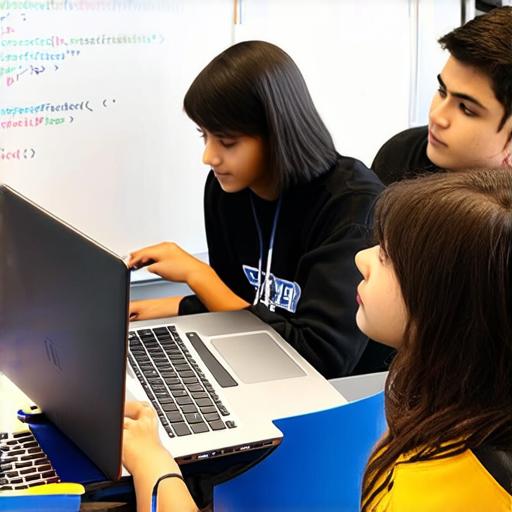Are you interested in becoming a software developer but don’t have the financial resources to pay for expensive coding courses or bootcamps? Don’t worry, you’re not alone. Many aspiring developers face this challenge, but with the right mindset and approach, it’s possible to learn coding without spending a dime. In this article, we’ll explore some effective ways to become a software developer on a budget, including free online courses, open-source projects, and community resources.
Free Online Courses
One of the most convenient and cost-effective ways to learn coding is through free online courses. There are countless websites and platforms that offer free coding courses, including Codecademy, FreeCodeCamp, Coursera, and edX. These courses cover a wide range of programming languages, including Python, Java, JavaScript, and more.
Codeacademy, for example, offers interactive coding lessons and projects that allow you to practice what you’ve learned. The platform is user-friendly and offers real-time feedback, making it an excellent option for beginners. FreeCodeCamp, on the other hand, offers a comprehensive curriculum that covers web development, data science, and artificial intelligence. The platform also includes interactive projects and quizzes to help you master coding concepts.
Open-Source Projects
Another way to learn coding without spending money is by contributing to open-source projects. Open-source software is free and accessible to anyone, making it an excellent option for aspiring developers. By contributing to these projects, you’ll gain valuable experience working with real code and collaborating with other developers.
Some popular open-source projects that welcome contributions include WordPress, Drupal, React, Angular, and Vue.js. These platforms provide detailed documentation and support, making it easy for beginners to get started. By contributing to these projects, you’ll not only gain coding experience but also build your portfolio and network with other developers.
Community Resources
There are many online communities that offer resources and support for aspiring software developers. These communities include forums, social media groups, and online discussion boards where you can connect with other developers and get advice on coding challenges and projects.
Some popular online communities for software developers include Reddit’s r/learnprogramming subreddit, Stack Overflow, GitHub, and HackerRank. These platforms offer a wealth of knowledge and resources for developers of all skill levels, from beginners to experienced professionals. By joining these communities, you’ll have access to a network of supportive developers who can help you overcome coding challenges and provide valuable feedback on your projects.
Self-Learning Strategies
While there are many resources available for aspiring software developers, it’s important to develop effective self-learning strategies to maximize your learning experience. Here are some tips for successful self-learning:
- Set clear goals: Define what you want to achieve with your coding education and set specific, measurable, achievable, relevant, and time-bound (SMART) goals. This will help you stay motivated and focused on your learning objectives.
- Create a study schedule: Develop a regular study schedule that allows you to dedicate enough time to learning without overwhelming yourself. Be realistic about how much time you can commit each day or week and stick to your schedule as best you can.
- Practice regularly: Coding is a skill that requires practice to improve. Set aside time each day or week to practice coding challenges, work on projects, or contribute to open-source projects. The more you practice, the better you’ll become.
- Seek feedback: Get feedback on your code and projects from other developers in online communities or through peer reviews. Constructive feedback can help you identify areas for improvement and develop a growth mindset.
- Stay up-to-date: Keep up with the latest trends and technologies in software development by reading blogs, attending webinars, and participating in online discussions. Staying informed will help you stay relevant and competitive in the job market.
Case Study: The Self-Taught Software Developer
Meet John, a self-taught software developer who learned to code without spending any money. John was always interested in programming but didn’t have the financial resources to pay for expensive courses or bootcamps. Instead, he used free online courses, open-source projects, and community resources to learn coding on his own.
John started by taking a beginner’s course on Codecademy, which taught him the basics of HTML, CSS, and JavaScript. He then contributed to several open-source projects, including a WordPress plugin that he developed to help people find local businesses. John also joined online communities like Reddit’s r/learnprogramming subreddit, where he got advice on coding challenges and projects from other developers.
After a few months of self-study, John landed his first software development job at a small startup. His experience working on open-source projects and contributing to online communities gave him valuable experience that impressed potential employers. Today, John works as a software developer for a major tech company and is grateful for the opportunities he’s had as a self-taught developer.
FAQs

1. What if I don’t have access to a computer or internet connection?
While most online courses and resources require a computer and internet connection, there are some alternatives available. Some libraries and community centers offer free computer labs where you can practice coding. You can also use mobile apps like Codecademy’s app or FreeCodeCamp’s app to learn coding on the go.
2. What if I don’t have any prior programming experience?
Many online courses and resources are designed for beginners, so it’s never too late to start learning. Start with beginner
